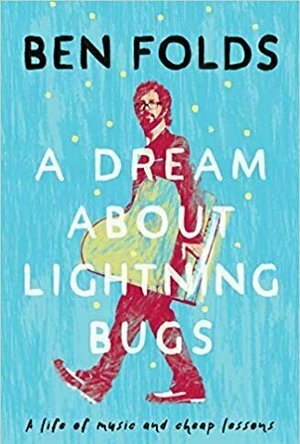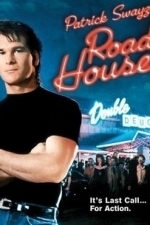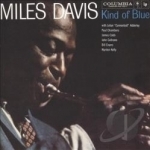Search
Search results
Kristy H (1252 KP) rated A Dream About Lightning Bugs: A Life of Music and Cheap Lessons in Books
Oct 14, 2019
Ben Folds--as you probably know if you're interested in his autobiography/memoir--is a singer-songwriter who became popular in the 1990s as part of the band Ben Folds Five. He's well-known for his piano skills, vocals, and songwriting. He's also had a somewhat tumultuous personal life, with multiple marriages that ended in divorce. This memoir covers his childhood and his fame with Ben Folds Five and his solo career, up until the relative present.
"This is a book about what I know. Or what I think I know. It's about music and how it has framed and informed my life and vice versa. About the stumbles, falls, and other brilliant strokes of luck that brought me here."
I discovered Ben Folds Five in college via my roommate/best friend, and I've been a fan ever since. I was excited to read this, but I've gotta admit: it was a slog. I basically forced myself to finish. I've always sort of thought of Ben Folds as a bit arrogant, so that may have clouded some of my reading of this autobiography. It certainly didn't help dissuade me of that opinion.
For me, the best parts were when Folds was talking naturally about his life and story. His childhood was interesting and it was really no surprise that he was a musically obsessed, somewhat irreverent kid. It was intriguing to see the various paths that led him to Ben Folds Five and stardom.
I did not enjoy--at all--the part where he felt the need to impart forced, preachy lessons about life and music. Maybe if I was more of a music person (as in, I played it versus listened to it) the music lessons would have been of interest. It felt like an editor said, "Ben, every few chapters you have to make sure the reader learns something." And he diligently and forcefully made sure we did. But the point of the book seemed to be that he was a screw up, who got where he was halfway by accident, so the whole lessons thing seemed awfully preachy and fake.
The better pieces were funny anecdotes--Folds playing as a one-man polka band and winding up doing a private gig for an elderly couple, where the husband had a wooden leg. Folds meeting a then-unknown Keith Urban. How he met Robert and Darren of Ben Folds Five. I was disappointed how much he skipped over as he became a more famous musician. We get a lot about his childhood, his various tries at college, and his musical attempts up until Ben Folds Five. He does talk about the formation of Ben Folds Five and how it felt to suddenly become so famous. But then, so much of the detail dwindles. He alludes to how the band might have had some tension, but the actual breakup, via email, gets a few sentences. Even his many marriages and his associated emotional turmoil gets glossed over quite a bit.
So, for me, I was left wishing for more with this one. It's a good quick brush-over of Ben Folds' life. There are some cheesy, slightly pompous "life lessons" inserted. You get a few funny stories among all this and the backstory behind a few songs: that, to me, was the good stuff. Otherwise, it was a bit of a drag, and I didn't finish really knowing much more about the real Ben Folds than I did when I came in. Rather disappointing. 2.5 stars.
"This is a book about what I know. Or what I think I know. It's about music and how it has framed and informed my life and vice versa. About the stumbles, falls, and other brilliant strokes of luck that brought me here."
I discovered Ben Folds Five in college via my roommate/best friend, and I've been a fan ever since. I was excited to read this, but I've gotta admit: it was a slog. I basically forced myself to finish. I've always sort of thought of Ben Folds as a bit arrogant, so that may have clouded some of my reading of this autobiography. It certainly didn't help dissuade me of that opinion.
For me, the best parts were when Folds was talking naturally about his life and story. His childhood was interesting and it was really no surprise that he was a musically obsessed, somewhat irreverent kid. It was intriguing to see the various paths that led him to Ben Folds Five and stardom.
I did not enjoy--at all--the part where he felt the need to impart forced, preachy lessons about life and music. Maybe if I was more of a music person (as in, I played it versus listened to it) the music lessons would have been of interest. It felt like an editor said, "Ben, every few chapters you have to make sure the reader learns something." And he diligently and forcefully made sure we did. But the point of the book seemed to be that he was a screw up, who got where he was halfway by accident, so the whole lessons thing seemed awfully preachy and fake.
The better pieces were funny anecdotes--Folds playing as a one-man polka band and winding up doing a private gig for an elderly couple, where the husband had a wooden leg. Folds meeting a then-unknown Keith Urban. How he met Robert and Darren of Ben Folds Five. I was disappointed how much he skipped over as he became a more famous musician. We get a lot about his childhood, his various tries at college, and his musical attempts up until Ben Folds Five. He does talk about the formation of Ben Folds Five and how it felt to suddenly become so famous. But then, so much of the detail dwindles. He alludes to how the band might have had some tension, but the actual breakup, via email, gets a few sentences. Even his many marriages and his associated emotional turmoil gets glossed over quite a bit.
So, for me, I was left wishing for more with this one. It's a good quick brush-over of Ben Folds' life. There are some cheesy, slightly pompous "life lessons" inserted. You get a few funny stories among all this and the backstory behind a few songs: that, to me, was the good stuff. Otherwise, it was a bit of a drag, and I didn't finish really knowing much more about the real Ben Folds than I did when I came in. Rather disappointing. 2.5 stars.
Mike Wilder (20 KP) rated Road House (1989) in Movies
May 30, 2018
Very underrated
Contains spoilers, click to show
So what kind of film do you get when you have great one liners, bar fights, guns, knives, egos, strippers, blues music, a polar bear and a monster truck? You get one of the most enjoyable and entertaining films of the late 80's, Road House. The film follows James Dalton (Patrick Swayze) a cooler (bouncer) and the best in the business, as he takes employment with Frank Tilghman (Kevin Tighe) the owner of the Double Deuce in Jasper, Missouri. The bar is the roughest in town and he needs Dalton to clean it up. However corrupt business man and crime boss Brad Wesley (Ben Gazzara) stands in his way. After the classic "chick flick" Dirty Dancing, Patrick Swayze was Hollywood gold. Women loved him and men wanted to be him. The film was full of romance. Then along came Road House, a complete opposite to Dirty Dancing, a little romance and loads of action. The film has a great cast including Patrick Swayze, Kevin Tighe, Ben Gazzara, Kelly Lynch, Marshall R. Teague, Red West, Kathleen Wilhoite, John William Young, John Doe, Kurt James Stefka, Keith David & Terry Funk. The cast works well together and it is full of great performances. Naturally Patrick Swayze at the height of his career stands miles apart from the rest of the cast as Dalton. A character that can hurt you with his words just as much as his fists. Tragically, 20 years later Swayze had his life cut short by cancer. His death is still a major loss to the entertainment industry, but his legacy will live on in the great performances and memorable characters he played. The film also a features a great performance by the late great blues guitarist Jeff Healey as Cody. It's the music in the film that goes a long way to achieving the right feel for the film. Everything works well from the characters, the music to the setting. Set in a rural area the scenery is breath-taking and it is used to great effect. But it's the fight choreography that stands out from many other films. Great bar fights are pretty much a thing of the past, but here they are full of action and humour just like the classic westerns. The one on one fights are brutal, mainly for the realism they portray. The script is awesome and full of classic lines mainly from Dalton and although many are cheesy, when he says it, it feels right. The director surprisingly hasn't made many films but the ones I have seen of his I really like and I know I am in the minority. See my review of Gladiator (1992) for more by this director. This is truly a great film, although very underrated. It is also one of my personal all-time favourites. There are a couple of versions of this so ensure that you see the USA or UK version released after 2002 as these are the uncut editions. So grab a few beers and a few friends, but this on a big screen and turn the sound way up for a really great movie experience.


